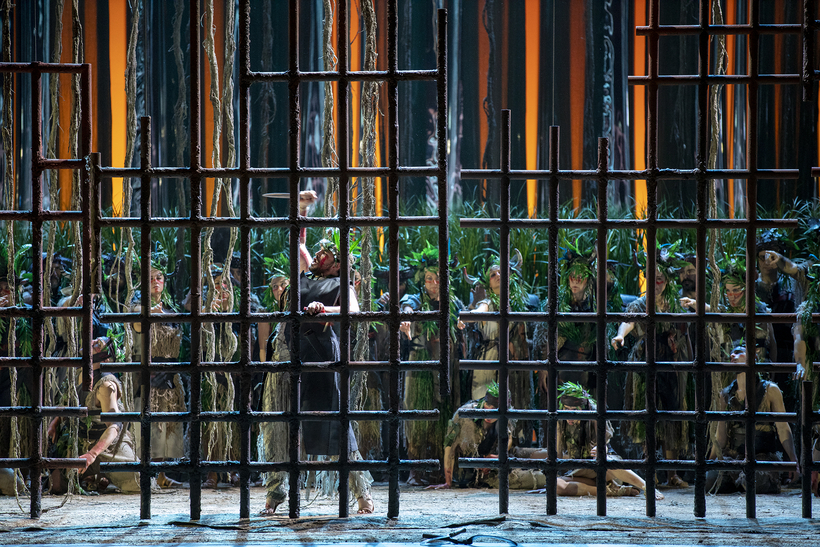Into the opera house of your dreams, project, if you please, Franco Zeffirelli’s festival premiere of Lo Schiavo (The Slave). Set in colonial Brazil, the plot revolves around a Portuguese plantation owner’s Byronic son (the tenor) and an enslaved Indian chief (the baritone) who first bond and then clash over the Indian slave girl they both adore (the prima donna soprano).
The music is from the pen of Antônio Carlos Gomes, a Brazilian whose operatic career took off in Rio de Janeiro but exploded in Italy when Brazil’s Emperor Pedro II sent him there on scholarship for further study. In time, no shabbier an authority than Giuseppe Verdi would declare Gomes a “true musical genius.”
Let the fantasy continue. Backstage, Netrebko, Domingo, Bartoli, and Hvorostovsky are warming up, each in peak vocal estate and looking like a million bucks. Out front, a gala audience anticipates the long-forgotten melodies, suspense, and exoticism of a swiftly paced melodrama of love and emancipation. As the drama proceeds, cognoscenti of Italian traditions from Donizetti to Verdi will find themselves reveling in reminiscences of Lucia di Lammermoor, Don Carlos, and Aida.

Reality check. Lo Schiavo never made it into our dream team’s date book. What luck, then, that cameras were rolling for the belated Italian premiere—likely also the European premiere—on the out-of-the-way Mediterranean island of Sardinia in 2019, at the Teatro Lirico in Cagliari (population 150,000), a house that hosts outside-the-box operatic resurrections with surprising frequency.
The guiding spirit of the performance is the conductor John Neschling, a compatriot of the composer’s and his longtime champion. In Neschling’s hands, the evocative prelude summons up the colors of dawn with the transparency of a pristine watercolor. A melting romanza, which collectors may know from a vintage recording by Enrico Caruso, epitomizes lyricism at its purest.

Closing in on the final curtain, a choral cry for freedom provides the volcanic setup for the hero’s grand finale, in which Andrea Borghini’s Iberè, the slave of the title, finds his eloquent groove, torn between personal heartache and the fate of the tribes. But among the principals, it’s Elisa Balbo as the prickly, self-mocking abolitionist Contessa di Boissy who takes the blue ribbon for best in show. In a cameo made to order for the talents of a Cecilia Bartoli, Balbo also just happens to pull off the most telling bit of stage business, coolly washing a hand touched by a slave she has just set free.
Fun facts. With the Paraguayan-themed Il Guarany, which premiered at Milan’s Teatro alla Scala the year before the unveiling of Aida in Cairo, Gomes hit the jackpot. Flush from his triumph, he built a palatial villa (still extant and dedicated to his memory) steps from the shores of fashionable Lake Como.
Then the planets drifted out of alignment. Though slated for a premiere in Bologna in 1887, Lo Schiavo would not see the light until 1889, in Rio de Janeiro—the year after Brazil passed the epochal Golden Law, or Lei Áurea, abolishing slavery. Leading the performance in her professional debut was Chiquinha Gonzaga, Brazil’s first female conductor.
Lo Schiavo is available for streaming on medici.tv
Matthew Gurewitsch writes about opera and classical music for AIR MAIL. He lives in Hawaii

